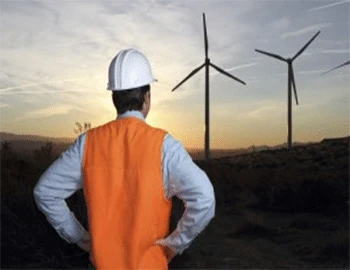Which is Worse: A Bad Job or No Job?

Which is Worse: A Bad Job or No Job?
You might think there’s nothing worse than being unemployed. Not only do you feel like you’re not contributing and using your talents, you’re also not making any money, which is stressful and even frightening as the bills pile up around you. Your self-esteem might start to drop when you can’t find work, and you get anxious as that gap in your resume widens. How are you going to explain that when you finally get an interview? At some point during unemployment, you think, “I’ll take any job right now. Even a bad one.”
In 2011, CNN reported on this study, which indicated
a surprising trend:
“‘Moving from unemployment to a poor-quality job offered no mental health benefit, and in fact was more detrimental to mental health than remaining unemployed,’ says the lead author of the study, Peter Butterworth, Ph.D.”
Bad jobs in the construction, engineering, or environmental industries can share some of the following characteristics that employes related to regularly:
- An unsafe working environment.
- A manager or supervisor who is indecisive, manipulative, unavailable, or bad at communicating. This article notes that people who make bad bosses in the construction industry play favorites and don’t offer employees a path toward professional development and career advancement.
- Low pay.
- Monotonous, unchallenging tasks.
- A heavy workload.
- Lack of clear expectations for the job.
- Lack of job security or not enough hours of work.
While everyone has a different level of tolerance for workplace politics and job demands, these characteristics, alone or in combination, can leave an employee stressed, disheartened, anxious, and frustrated. At the end of a long day of being micromanaged, overworked, or underappreciated, employees in bad jobs go home tired, unhappy, and unfulfilled. This mental drain can start to impact their personal lives, as well.
While unemployment carries its fair share of stress, this article points out a distinct opportunity that a bad job rarely offers:
“Unemployment is stressful, but it still leaves room for possibilities. When you’re unemployed, you focus all of your efforts on finding a fulfilling position. Yet, when you’re working a dead-end job, you’re so depleted at the end of the day it’s difficult to begin thinking about the future….”
With unemployment, you have time and energy to devote to perfecting your skills and finding a good job, a job where you feel challenged, where your work is appreciated, and where you can move forward in your career.
If you’re already in a bad job, the fear of unemployment can turn that bad job into a trap. You might be hesitant to leave it, preferring “the devil you know” to the uncertainty of being without a job. ABC News recognized this trap and offered a few tips for making the best of that bad situation:
- Try to improve your relationship with your boss.
- Ask for new assignments.
- Don’t engage in office or construction site gossip.
- And, the most important tip of all: “Do one thing every day to find a new job.” Prevent your bad job from becoming a soul-sucking trap by being proactive about finding a better one.
If you are currently unemployed, take a deep breath and remember the good thing about it: you’ve got time. Use that time wisely to hone your skills, perfect your resume, meet new people, and find your ideal job. The paycheck might seem to make a bad job worth it, especially if it’s been a while since you had a steady income, but you have to consider the toll it takes on your health and well-being.
Whether you find yourself unemployed or in the middle of a bad job, work to better the situation. Having a game plan is empowering, and when you follow the steps, you’ll find your way toward that better job.
Michael DeSafey is a leading executive recruiter for professionals in the construction, engineering and environmental industries. He is currently the President of Webuild Staffing www.webuildstaffing.com . To learn more about Michael or to follow his blog please visit www.michaeldesafey.com
How to Build Your Professional Brand Using Digital Strategies

How to Build Your Professional Brand Using Digital Strategies
Are you looking for ways to advance your professional brand in the environmental, engineering or construction industry? In a technology age where employers and industry leaders are using digital platforms to connect, engage and collaborate, establishing a solid presence online is vital to staying current in today’s strategies. Being active online will give you the slight edge, separating you from other colleagues in your niche.
As you’re advancing your career, here are 3 unique ways to position yourself as an expert and leader in your respective industry.
#1 Grow a Blogging Presence
Building a blog is one of the best ways to solidify your expertise in the environmental, engineering or construction industry. According to Hubspot, blogs have been rated as the 5th most trusted source for accurate information. Blogging allows you to share useful content to colleagues, influencers, and those seeking to expand their career in these industries. As a result, you’ll grow a loyal following while building an impressive professional presence online.
Choose a blogging platform such as WordPress or Medium to create your own blog. Brainstorm topics, common questions, and problems that are known in your industry to craft blog content ideas. Establish a blogging schedule and be consistent. With a regular blogging cadence, you’ll create a vault of posts to share with your social media networks, forward to your colleagues, and present to future employers as you advance in your career.
Finally, syndicate your blog articles on LinkedIn Pulse for greater exposure. This is an excellent way to cement your authority in the industry and get in front of an engaging audience.
#2 Share Informative Social Media Posts
A whopping 92% of marketers share that social media is important to their business. Brands leverage social media marketing as a way to increase awareness, connect with their audience, and attract customers to their websites. Since more consumers are using their social networks to engage with businesses, it’s important for brands to show up for their audience.
Equally, social media can be a viable platform for you to grow your professional brand. You see, you never know who’s in your social network that can connect you with a new opportunity for career advancement. With your social media strategy, you can post valuable content to educate, inform and inspire.
In fact, here are a few ideas to build your social media presence while progressing your career:
- Post relevant content that your followers can use. Answer questions, share your advice or post facts that are deemed helpful to those in your niche
- Share industry-related news to keep your audience abreast on current events. Offer your insight or opinion to make it authentic. Take it a step further by going live on Facebook Live to capture attention in newsfeeds
- Inspire your audience by posting quote images. You can locate ones on Google Images or create your own using Canva
- Curate and share authoritative content pertaining to the environmental, engineering or construction industry. You’ll be viewed as a reliable source, encouraging people to visit and engage on your page regularly
- Keep it simple with your postings. The key on social media is consistency and quality. Depending on the network, you can post as few as once a day (LinkedIn) or twice (Facebook, Instagram, Google+) and be effective
#3 Post Useful Videos on YouTube
There are a plethora of benefits to using video to build your professional brand. Video has a way of drawing viewers into your message and allowing them to experience your personality. People enjoy video because it’s transparent, original, and an easy way to digest your message. Although some may prefer reading your blog post or social media content, many will opt for video.
Lastly, videos help boost your confidence and communication skills. The more videos you create sharing relevant content in your industry, the more you’ll enhance your speaking abilities.
Use this to your advantage for your career. Create and upload videos on YouTube that relates to your industry. Use the same strategy in blogging for coming up with video topics. To increase exposure, be sure to share your videos on your social networks. Additionally, include popular keyword phrases that your audience would use when searching on YouTube for your subject matter.
Developing a video strategy for your professional brand will greatly separate you from other industry colleagues who are simply relying on one platform to cement their credibility.
Conclusion
Many of your colleagues are not optimizing digital strategies to excel their careers. Whether you’re in the environmental, engineering or construction industry, you’ll find that these tactics will help you standout and be noticed. You’ll enhance your portfolio while positioning your professional brand for future success.
Commit to adding each element in promoting your brand. Maintain a consistent blogging schedule to showcase your expertise. Leverage social media to connect and offer invaluable content your followers can use. Then, add videos to bring authenticity to your message while engaging a much wider audience.
Michael DeSafey is a leading executive recruiter for professionals in the construction, engineering and environmental industries. He is currently the President of Webuild Staffing www.webuildstaffing.com . To learn more about Michael or to follow his blog please visit www.michaeldesafey.com
